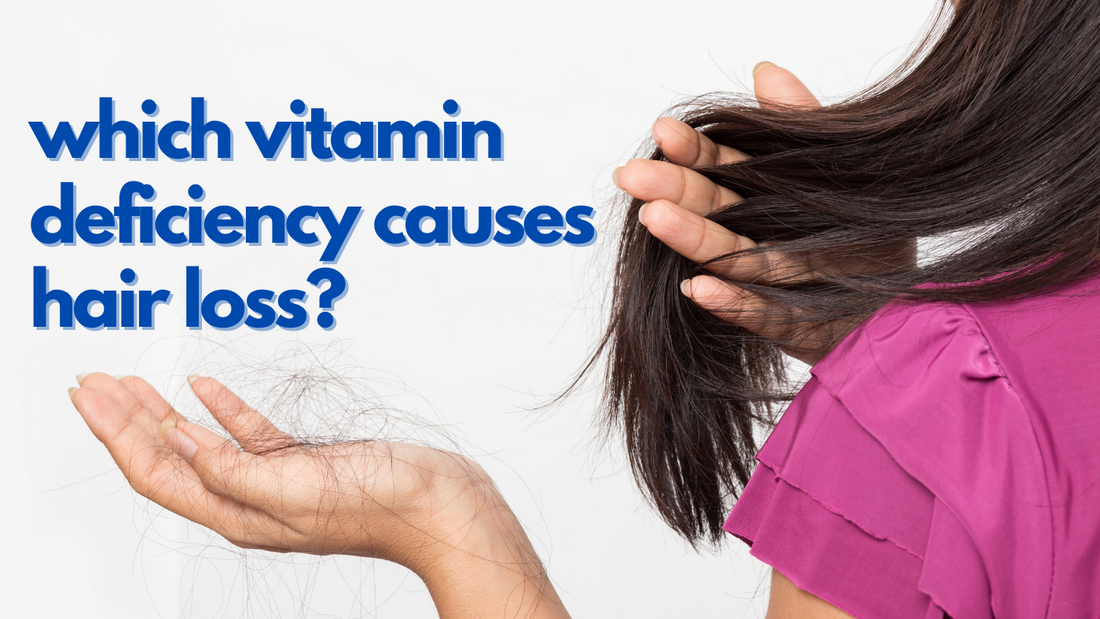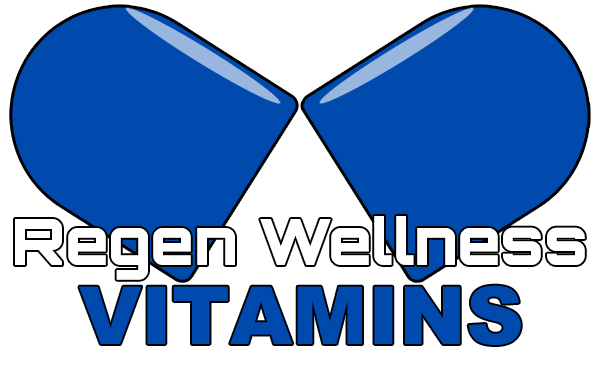
Which Vitamin Deficiency Causes Hair Loss?
Share
Are you concerned about hair loss? While many factors can play into hair loss such as genetics, disease, and over processing, it can be a sign of a vitamin deficiency. Addressing the root cause of your hair loss can help to improve your overall health. In this article, we'll take a look at which vitamin deficiencies are most likely to cause hair loss. Keep reading to learn more!
Vitamin A
If you're looking to supercharge your diet, vitamin A is a great place to start. This essential nutrient helps support healthy vision and immune system functioning. Vitamin A can be found in many colorful fruits and vegetables such as carrots, cantaloupe, sweet potatoes, spinach, kale or apricots. Adding just a few servings of these powerful sources of this important vitamin every day can make a big difference in your health and wellness!
-found in many colorful fruits and vegetables such as carrots, cantaloupe, sweet potatoes, spinach, kale or apricots
Beta -Carotene
With the recent push for healthier diets and lifestyles, there is an abundance of nutritious options to choose from. One of those options include food items that are rich in beta-carotene! This nutrient can be found in carrots, sweet potatoes, spinach, kale, tomatoes, and cantaloupe.
Beta-carotene is an antioxidant that helps protect your cells from damage caused by free radicals; it also aids in cell regeneration and growth. Not only is it tremendously beneficial for your health and wellbeing, but these food items all have their own unique flavor so you don't have to compromise taste for nutrition either!
- found in carrots, sweet potatoes, spinach, kale, tomatoes, and cantaloupe
Vitamin B6
Vitamin B6 is a vitamin our bodies need to stay strong and healthy. From digestion to growth, this key nutrient helps us out in all kinds of ways. Vitamin B6 works to maintain normal body functions such as forming red blood cells and converting food into energy. Plus it's essential for keeping your skin, eyes, hair and liver healthy!
With so many important roles to play, it's no surprise that the World Health Organization recommends getting enough Vitamin B6 in your diet every day. Try adding nuts, eggs, fish or green leafy vegetables to your meals and snacks for a great source of Vitamin B6!
-found in nuts, eggs, fish or green leafy vegetables
Magnesium
Magnesium is an essential mineral that can help keep your body healthy and balanced. You can find it in many different foods, including poultry, fish, whole grains, and bananas. Magnesium helps support the production of energy in the body, keeps our nervous system functioning properly, helps bones maintain their strength, as well as supports muscle contraction and healthy blood pressure levels. So what are you waiting for? Reach for that banana or grain-filled dish to get your daily dose of magnesium! It just might improve how you feel overall.
- found in poultry, fish, whole grains, and bananas
Vitamin C
Vitamin C is an important part of a healthy diet, as it's essential for the growth and repair of tissues in our body. It aids in the production of collagen which helps give us strong bones and teeth, in addition to helping with wound healing.
Furthermore, vitamin C is a powerful antioxidant that helps fight off free radicals which damage our cells. While you can obtain this powerful vitamin from many fruits and vegetables, such as oranges or spinach, there are also plenty of food products on the market that have been fortified with vitamin C! With just a little extra effort, getting your recommended daily dose of Vitamin C is easy!
Supporting your immune system has become more important than ever, and there are plenty of ways to do just that! Did you know that eating foods rich in Vitamin C is one of them? That's not all - Vitamin C also helps stimulate collagen production for better skin, hair and nails. In fact, there have been several studies linking the consumption of Vitamin C with improved immunity and the promotion of collagen production. So don't forget to add some oranges, berries or leafy greens into your diet if you want to make sure you're getting a healthy dose of this essential vitamin!
- found in citrus fruits, bell peppers, broccoli, Brussels sprouts, and strawberries

Vitamin D
Did you know that getting enough Vitamin D is important for keeping your bones strong and healthy? Vitamin D helps the body absorb calcium, which is necessary for building and maintaining bones. Not only can it protect against bone loss, but it's also considered to be an important factor in reducing the risk of certain chronic diseases.
With so many health benefits associated with Vitamin D, it's no wonder why many are pursuing ways to get enough of it! It can be obtained from natural sunlight exposure or through a variety of dietary sources like oily fish, red meat, organ meats, and fortified foods such as dairy products and breakfast cereals. There are also several supplements available to help you meet your needs for this essential vitamin. Whatever source you decide to use, just make sure you're getting enough Vitamin D!
- found in fatty fish like salmon and tuna as well as fortified milk and cereals - important for calcium absorption and bone health
Vitamin E
Vitamin E is a powerful antioxidant that our bodies rely on for optimum health. It helps to protect cells from damage, and can even help with age-related vision problems or skin dryness. You can find Vitamin E in foods like almonds, spinach, avocado, and pumpkin seeds, so including these in your diet is an easy way to get some of this essential vitamin into your body.
While it's not necessary to take supplements since you can obtain Vitamin E from food sources, some people do opt for them if they feel as if they're not getting enough of the important nutrient. In any case, make sure you are working with your doctor or healthcare provider to make sure that you’re getting the right amount of Vitamin E - because a little goes a long way!
- found in nuts like almonds and hazelnuts as well as leafy greens - important for antioxidant protection against free radicals
Biotin
Biotin, also known as Vitamin B7, is an essential nutrient for hair growth and nail health. Biotin is an important vitamin for keeping your hair shiny and nails strong. While it can be found in foods like eggs, tuna, nuts and avocados, you may want to consider taking a B vitamin complex supplement if you think that you're not getting enough of this essential nutrient from food sources.
It's also great for maintaining healthy skin tone, so incorporating Vitamin B7 into your diet is an easy way to look and feel your best. To make sure you're getting your daily dose of biotin, be sure to check the labels on any supplements that you decide to use - just don't forget about this important vitamin!
- found in eggs, tuna, nuts and avocados - important for hair growth, nail health and skin tone.
The Best Supplement For Hair Loss
Now you may be wondering how you can find a supplement that covers all your bases when it comes to potential vitamin deficiencies for hair loss. B Supreme by Designs for Health has you covered when it comes to hair growth support vitamins.
B Supreme by Designs for Health has all the important vitamins needed to help with hair regrowth and strength including B6 and Biotin. This formula is designed in a highly bioavailable delivery so that your body absorbs more of the nutrients it needs for more efficacy.
Order your B Complex by Evexias HERE.
Which Vitamin Deficiency Causes Hair Loss?
In conclusion, vitamins are essential for our health and well-being INCLUDING hair growth. While we can get some vitamins from the food we eat, it is often not enough. That's why supplements are important. They help to ensure that we're getting all the nutrients we need. vitamins A, B6, Biotin, C, D, and E are especially important for a healthy immune system, metabolism, skin, vision, and more.
Which of these vitamins do you make sure to take regularly? How do you make sure that your body is getting all the vitamins it needs? Let us know in the comments!



